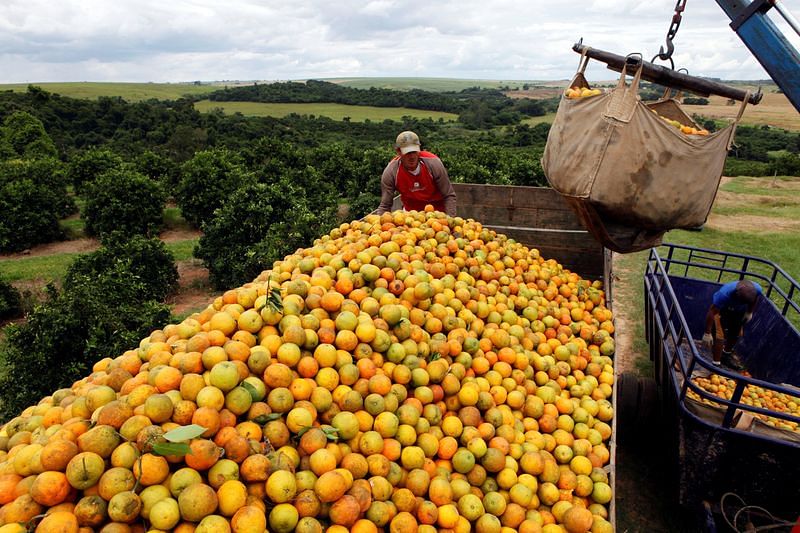SAO PAULO (Reuters) – Brazil’s orange production is at risk due to a citrus greening disease spreading in the world’s largest fruit and juice producer, a research center said on Thursday, as producers rush to get ahead of the outbreak.
A study published by Fundecitrus showed a 56% growth of the most serious disease of citrus in Brazil’s main orange-producing region encompassing parts of the Sao Paulo and Minas Gerais states.
For the whole of the country’s citrus belt, the disease’s incidence increased to 38% from 24.4% last year, the biggest percentage jump since 2008.
“It is a very delicate moment. We are in a situation where the correct management will be decisive in reducing the incidence,” Fundecitrus’ general manager, Juliano Ayres, said in a statement.
In the U.S., Florida has grappled with citrus greening disease, or huanglongbing, for more than a decade, shrinking the state’s output. Infected trees produce fruits that are green, misshapen and bitter, unsuitable for sale as fresh fruit or for juice
One of the main causes of the disease’s advance is the keeping of infected trees in commercial orchards, where there is insufficient control of psyllids, insects that play a role as a vector of the bacteria that causes greening.
The psyllid is also becoming more resistant to insecticides, and a favorable climate for sprouting is helping its population grow, Fundecitrus said.
“The lack of proper rotation of insecticides with different actions purposes led to the rapid selection of psyllid populations that are resistant to groups of insecticides, and the consequent loss of effectiveness of these products,” Fundecitrus researcher Renato Bassanezi said.
Brazil has been recording low harvests in recent years, due to challenging weather conditions while dealing with greening disease.
Orange production for the 2023/24 season in the citrus belt is estimated to fall to 309.34 million 40.8-kg boxes, 1.55% below the previous season’s production.
(Reporting by Roberto Samora; Writing by Carolina Pulice; Editing by Marguerita Choy)
Disclaimer: This report is auto generated from the Reuters news service. ThePrint holds no responsibilty for its content.
